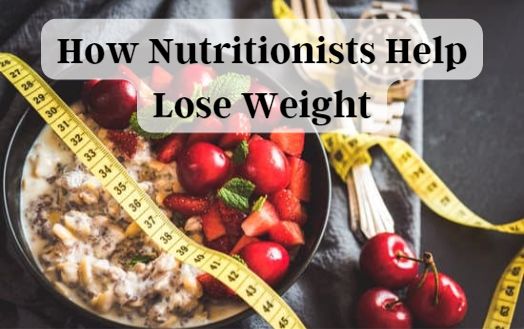Do you suffer from Irritable Bowel Syndrome (IBS)? It’s a tough condition to live with, and it can often feel like there isn’t an answer. But the truth is that help is available – in the form of a nutritionist. A qualified professional can provide guidance on how to manage your IBS through diet and lifestyle changes. Let me explain how a nutritionist can help with IBS.
Many IBS sufferers are stuck in a cycle of trial-and-error treatments. They try everything from over-the-counter medications to fad diets, only to be disappointed. Not your experience. A nutritionist can help you break this cycle and make lasting dietary changes for better digestive health.
Nutritionists can tailor a plan to your needs. They can evaluate your diet, including food types, variety, portion size, and nutritional deficiencies, and give you tips to maximize the nutritional value of each meal. They advise on foods that reduce symptoms and suggest alternatives to keep meals balanced and tasty while aiding digestion.
Definition Of IBS
Irritable Bowel Syndrome (IBS) affects millions of people worldwide. Abdominal pain, bloating, gas, bowel changes, and cramping can result. Trigger foods and lifestyle factors may cause or worsen IBS. A nutritionist can help you manage IBS and improve your gut health.
Dietary changes, like a low-FODMAP diet, can help IBS sufferers, but they can be difficult to implement. A nutritionist can help you create personalized meal plans by identifying your IBS triggers. They will also identify any nutritional deficiencies that may be affecting your digestive health before recommending supplements.
Working with a qualified nutrition professional who specializes in treating IBS can help you manage this condition more effectively and efficiently over time. Their expertise and guidance will equip you to improve your quality of life immediately.
Common Symptoms Of IBS
IBS affects millions worldwide. It can cause cramping, bloating, constipation, diarrhea, gas, and stool mucus. These IBS symptoms can help you decide whether to see a doctor or a registered dietitian nutritionist (RDN).
RDNs can help you identify IBS triggers. They’ll consider lifestyle, medications, stress, sleep, and eating habits to create a personalized plan. RDNs can recommend diet changes to reduce IBS symptoms. Avoiding IBS-triggering foods, adjusting portion sizes, increasing fiber intake, optimizing meal and snack timing, understanding food labels, and learning how to relax may help.
Your RDN may also recommend other IBS treatments. They’ll teach you how to manage this chronic condition through counseling and education. They can help you make healthy changes to feel better in your body every day.
Working with an experienced RDN who understands IBS is a crucial step toward better digestive health and future success.
Causes Of IBS

Let’s discuss IBS causes after discussing its symptoms. How IBS causes interaction is still unknown. However, some factors can help it develop. Diet and lifestyle are factors. Some people get IBS flare-ups from certain foods or alcohol. That’s why seeing a nutritionist can help you identify foods that cause flares and teach you healthy eating habits to better manage your IBS.
A nutritionist can help you manage IBS with diet and lifestyle changes. This includes identifying food intolerances and finding alternatives to foods that may cause flare-ups, so you don’t have to give up all your favorite foods. If needed, they’ll recommend supplements or probiotics to improve digestion and IBS-specific exercise regimens to strengthen abdominal muscles and reduce stress with yoga or mindfulness meditation.
Having a knowledgeable professional by your side will make these changes easier to incorporate into daily life to relieve IBS symptoms. Identifying triggers and making adjustments with their help will help you find long-term IBS solutions.
Let’s diagnose IBS now that we know its causes.
Diagnosing IBS
Diagnosing IBS can be a difficult process. An experienced nutritionist is invaluable in helping to accurately diagnose the condition and provide guidance for managing it. Here are some of the key factors that help identify if someone has IBS:
- Symptoms – IBS sufferers typically experience abdominal pain, bloating, gassiness or cramping along with changes in bowel movements.
- Duration – The symptoms must have occurred at least 3 times per month over a period of 3 months or more before they can be considered as signs of IBS.
- Exclusion of Other Conditions – It’s important to make sure any other conditions causing similar symptoms (such as celiac disease) are ruled out first by your doctor or nutritionist before diagnosing IBS.
- Elimination Diet – Sometimes an elimination diet may be recommended to determine which foods trigger certain symptoms so that dietary modifications can be made accordingly.
If you have IBS, your doctor or nutritionist should use all these factors to diagnose and treat you. Knowing how your body reacts to different triggers will help you manage your chronic condition and live a healthy lifestyle despite it. IBS can be managed with support, knowledge, and understanding.
How To Manage IBS

Managing IBS symptoms is difficult. You can manage and relieve the condition. Working with an IBS nutritionist is crucial. Patients with this condition can benefit from a nutritionist’s personalized low-FODMAP diet advice.
Food and nutrition are crucial to managing IBS. Nutritionists know that everyone’s IBS is different, so they provide individualized dietary advice. Professionals can tailor meal plans to your goals and preferences while meeting your nutritional needs.
Managing IBS symptoms and making lifestyle changes requires an experienced professional. No matter where you are in life or health, expert advice and support can help you make lasting changes. In the next section on the “role of a nutritionist in treating IBS,” we’ll look at how working one-on-one with a specialist may improve symptom management.
Role Of A Nutritionist In Treating IBS
A nutritionist can help you create a healthy eating plan that’s tailored to your needs and lifestyle, as well as identify foods that may trigger or worsen symptoms. In this section, how a nutritionist can help with IBS is briefly explained.
Nutritionists can also recommend vitamins and herbal remedies to treat digestive issues caused by IBS. They know which nutrients and minerals are essential for digestion and can refer you to gastrointestinal specialists if needed.
Finally, working with a nutritionist is a chance to learn more about yourself and your body. They can give you advice and teach you skills like mindful eating and stress management to make the most of what you eat and stay healthy. With their help, you’ll learn how to manage your IBS so it doesn’t control your life.
Nutrition Expertise Needed For Treating IBS

Living with IBS can be difficult, but having a nutrition expert to help you manage your IBS is crucial. When it comes to IBS diet management, registered dietitian nutritionists are the experts who can provide tailored advice about how best to alter eating habits and lifestyle choices in order to ease symptoms of Irritable Bowel Syndrome. Here’s what an RDN or Nutritionist can do for you:
- Offer food substitutions when necessary.
- Help create meal plans that include foods containing fiber without triggering discomfort or bloating.
- Educate on which dietary supplements may support gastrointestinal health.
- Advise on strategies for managing stress or anxiety which could trigger flare ups from IBS.
- Identify potential intolerances and allergies related to digestive issues.
This kind of specialized expertise helps individuals gain insight into their unique needs and provide guidance and accountability throughout the process of finding relief from IBS symptoms. Working with a knowledgeable professional like an RDN or nutritionist is essential if you want to make sustainable changes that will benefit your overall health over the long term.
Dietitian And Registered Dietitian Nutritionist
A dietitian or registered dietitian nutritionist (RDN) can help you manage your IBS by providing personalized dietary advice. They will assess your current diet and suggest changes that may reduce symptoms, such as adding more fiber. They may also recommend a high-FODMAP diet, which eliminates certain types of carbohydrates known to cause IBS flare-ups.
Low FODMAP Diet

A nutritionist or dietitian can help you make dietary changes that will reduce your IBS symptoms and improve your health.
A low-FODMAP diet reduces FODMAPs (fermentable oligosaccharides, disaccharides, monosaccharides, and polyols), which are harder for the large intestine to digest. Avoiding these foods may reduce your symptoms.
Your nutritionist or dietician can advise you on how long to follow this diet for a few weeks to see if it improves your IBS symptoms. If so, gradually reintroducing higher-fiber foods back into the diet in moderation should not cause any issues. They can also help you plan balanced and nutritious meals on such a restricted diet.
They can help you create a lifestyle management plan to manage your IBS symptoms using their expertise. Understanding fodmaps and their effects on the body will give us a better understanding of our digestive health and well-being.
FODMAPS And Their Impact On The Body
FODMAPs, which include monosaccharides, polyols, and fermentable oligosaccharides, can cause abdominal pain and bloating in people with IBS.
An accredited practicing dietitian (APD) can help you create a gluten-free diet to reduce or eliminate IBS symptoms by avoiding high-FODMAP foods like onions, garlic, apples, and honey and adding low-FODMAP foods like bananas, berries, and hummus. They will also advise you on how much of each food group to eat.
An APD can help you manage IBS by identifying foods that cause abdominal pain and bloating so you can avoid or reduce them to improve digestive health.
Identifying Triggers For Abdominal Pain And Bloating

A nutritionist can identify foods that cause abdominal pain and bloating and support lifestyle changes to reduce symptoms.
They will also help you create a diet plan to avoid trigger foods by assessing your symptoms and food triggers. For instance, if dairy products cause bloating or gas, you may want to switch to lactose-free milk like soy or almond.
Finally, they’ll assess carbohydrates that can cause gastro-intestinal distress in some people with IBS, such as processed grains, white breads, sugary snacks, and alcohol. Inflammation in the gut lining causes cramping and bloating. Working with a nutritionist will help you create an eating plan that manages both short-term and long-term symptoms.
Carbohydrates That Can Trigger Symptoms Of IBS
Nutritionists can help IBS patients by identifying which carbohydrates are affecting their bowel habits. Diet plays a big role in managing IBS symptoms, and many people find that changing their diet helps. Foods high in certain types of carbohydrates, such as intestinal fermentable carbohydrates, may cause symptoms for some people.
A nutritionist can help IBS patients improve their condition by restricting carbohydrate intake, educating them on how to add fiber and probiotics to their diets, and suggesting lifestyle changes that may improve gut health.
Thus, following a specialized diet tailored to individual needs can help treat IBS. Next, consider what intestinal fermentable carbohydrates may be causing your symptoms so you can work with your nutritionist to find the best solution.
Intestinal Fermentable Carbohydrates
Intestinal fermentable carbohydrates are one of the main causes of IBS. A nutritionist can help you identify which foods and habits may be worsening your symptoms and recommend the best ways to control them. They can also advise you to reduce or eliminate these carbs from your diet to improve your symptoms.
Dietary Strategies For Managing IBS Symptoms

Many people with IBS find relief from a nutritionist. Dietary strategies can help manage symptoms and provide long-term relief.
The first step is identifying which foods trigger your particular form of IBS. High-FODMAP foods like wheat, garlic, onions, certain dairy products, fruits like apples or pears, and cruciferous vegetables like broccoli or cauliflower are common triggers.
A nutritionist can also help IBS patients understand portion control and make sure they’re getting enough vitamins and minerals while avoiding flare-ups. They may recommend protein-rich foods like eggs or lean meats and complex carbohydrates like whole grains and leafy green vegetables to keep energy levels up without side effects.
With the help of a knowledgeable professional, people with IBS can find effective symptom management strategies that fit their lifestyle. Eating nutritious meals doesn’t have to be complicated or overwhelming.
Long-Term Effects Of Living With Irritable Bowel Syndrome
A nutritionist can help you manage your IBS symptoms and improve your quality of life by advising you on which foods to eat and which to avoid.
Avoiding trigger foods like dairy, caffeine, processed foods, artificial sweeteners, and more can reduce flare-ups and relieve symptoms like abdominal pain, diarrhea, bloating, flatulence, and constipation. Your nutritionist will help you create an individualized meal plan.
Dietary guidelines from a qualified professional allow for better planning when eating out or cooking at home, reducing the stress of managing IBS.
Working with a nutritionist who understands IBS can help you find foods that control your symptoms and get advice tailored to your body’s needs.
Final Thoughts
In conclusion, finding the right diet for IBS can be difficult. Working with a trusted nutritionist or registered dietitian nutritionist (RDN) to develop a personalized plan that meets your nutritional needs and addresses specific dietary triggers can help you manage your symptoms over time. This article has clearly explained how a nutritionist can help with IBS.
Finally, lifestyle changes like getting enough rest and relaxation, exercising regularly, managing stress should be considered when designing an individualized treatment plan for IBS.
Working with a nutritionist or RDN who understands your nutritional needs will give you the information you need to make informed food choices and meal planning strategies tailored to you, helping you find relief from IBS by learning how to nourish your body properly without sacrificing flavor or enjoyment.
Frequently Asked Questions
What Is The Best Type Of Diet For Managing IBS?
A nutritionist can help you determine the best diet for managing IBS based on your needs and symptoms.
First, make sure your body is getting all the nutrients it needs by eating plenty of fruits, vegetables, whole grains, proteins, and healthy fats. Eating smaller meals throughout the day may also help reduce IBS symptoms like bloating and abdominal pain. Avoiding trigger foods like spicy foods and dairy products can also help.
In addition, lifestyle changes like increasing physical activity or reducing stress can help manage IBS. Low-impact activities like walking or yoga improve digestion and reduce stress and anxiety. Mindful relaxation practices like deep breathing or progressive muscle relaxation may also help.
Working with a qualified nutritionist who specializes in digestive health issues is key to creating an effective eating plan for managing IBS symptoms. With their guidance and expertise, you will be able to develop a personalized strategy that helps you take control of your gut health and live symptom-free.
What Is The Difference Between A Dietitian And A Registered Dietitian Nutritionist?
When choosing a diet for IBS, it’s important to understand the difference between a dietitian and a registered dietician-nutritionist (RDN). Dieticians are qualified health professionals who advise on food and nutrition and can help people change their diets for better health or medical care. RDNs have additional training beyond that of a registered nurse.
RDNs use evidence-based research to make dietary recommendations and meal plans, but they also know how certain foods may affect diseases like IBS. Here are some ways in which an RDN can be more beneficial than a regular dietician:
- An RDN is equipped with the necessary skills to create personalized meal plans that cater specifically to individual needs.
- Their expertise allows them to identify potential triggers for digestive issues like IBS and give practical advice accordingly.
- They can provide ongoing guidance throughout your journey with IBS so you can stay on track over time without feeling overwhelmed by all the information out there regarding nutrition and wellness.
- A Registered Dietician Nutritionist will be able to monitor progress objectively and adjust treatment strategies if needed along the way.
Because of their extensive training, registered dietician-nutritionists (RDNs) can help people with IBS create balanced, delicious diets that address their underlying symptoms and improve their quality of life.
Are There Any Supplements That Can Help With IBS?
IBS, or irritable bowel syndrome, can be difficult to manage because its symptoms are unpredictable and uncomfortable. Many people don’t know that there are supplements that may help relieve IBS symptoms, so let’s look at how they might be used in an IBS treatment plan.
Talk to your doctor about supplement use as a possible treatment for IBS. Certain vitamins, minerals, and herbs can improve digestion and reduce inflammation caused by gut bacteria imbalances. Fish oil supplements may also reduce abdominal pain.
It’s important to note that no supplement has been proven to cure IBS, but if used correctly with other recommended therapies like dietary changes and stress management, they may help relieve its symptoms. Talk to your healthcare provider before starting any new supplement routine to ensure safety and efficacy.
How Often Should I See A Nutritionist For IBS?
Seeing a nutritionist for IBS can be beneficial, but how often should you visit them? Visiting regularly is key to managing IBS and getting the help you need. Here are three reasons why:
- A nutritionist has expertise in understanding diets that can best manage your symptoms.
- They will work with you to create an individualized plan tailored specifically to your needs.
- With regular visits, they can assess how well the plan is working and make adjustments as needed.
Your specialist may recommend visiting every few weeks or months, depending on how severe your IBS is, to keep your treatment on track and monitor any changes or new information about your condition. Regular check-ins also allow both parties to discuss diet and lifestyle choices related to improving your condition.
When seeing a nutritionist, write down all relevant medical history, including current medications, supplements, recent physical activities, dietary habits, and other health issues like allergies or mental health conditions that could affect IBS management decisions made together. This will ensure that nothing is missed when discussing strategies for better symptom control, which is essential for optimizing care.
Online community support groups offer information about living with IBS and practical tips for avoiding flare-ups and common triggers like certain foods or stressors. These resources should be explored as part of a comprehensive approach to actively managing this chronic condition.
Are There Any Lifestyle Changes That Can Help Reduce IBS Symptoms?
Is it possible to manage IBS with diet and lifestyle changes? Yes, and nutritionists can help you identify these changes.
First, nutritionists recommend limiting or avoiding foods that worsen IBS symptoms, such as dairy products, gluten-containing grains like wheat, barley, and rye, high-fat foods like fried snacks, beans, and cruciferous vegetables like broccoli and cauliflower, carbonated beverages, caffeine, alcohol, artificial sweeteners, and processed meats like bacon, sausage, hot dogs, etc.
Second, nutritionists recommend eating smaller meals more often rather than three large meals, eating slower, and chewing food well before swallowing. Probiotic supplements may also help with IBS symptoms.
Finally, if stress worsens your IBS symptoms, relaxation techniques like deep breathing or meditation may help. Regular exercise also reduces stress and constipation, a common IBS symptom. Overall, consulting a nutritionist regularly can help you manage your condition through diet and lifestyle changes.




